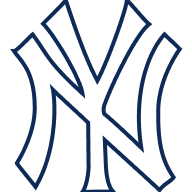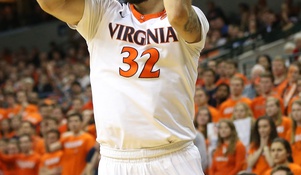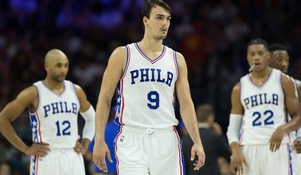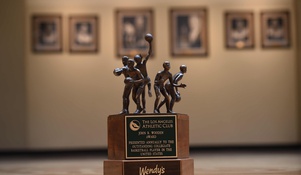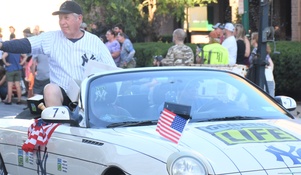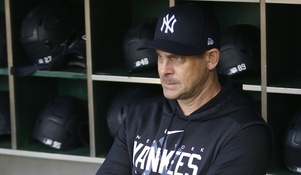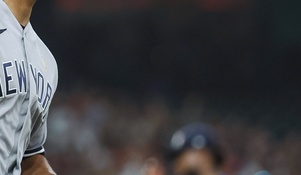What is Chris Carter's role on the Yankees?
It’s hard to imagine the last time that MLB’s reigning home run king had so little interesting from teams in free agency that he considered playing overseas. Yet, that was where Chris Carter stood a couple weeks ago. Despite lack of interest, Carter ended up signing a deal with the New York Yankees for one year and $3 million. What role can Carter play on the Yankees?
When the Yankees signed Carter it seemed like his playing time for this upcoming season would be very limited. When his deal was signed, Carter was listed on the Yankees depth chart as the third string first baseman and third string designated hitter. Carter is fortunate as he is likely going to be promoted, at least in the short team, to backup first baseman. The Yankees’ backup first baseman, Tyler Austin, broke his foot recently and will miss several weeks.
Why did Carter’s value fall so much despite hitting 41 home runs last year? He doesn’t do anything else that well. Last year Carter’s batting line was .222/.321/.499 with 76 walks and 206 strikeouts. In addition to leading the league in home runs, Carter’s 206 strikeouts was also the highest. Carter walks at a decent clip which brings his on base percentage to a reasonable clip, but mainly only hits home runs. Fangraphs.com gave Carter a 0.9 WAR last season which ranked 19th out of 23 qualified first basemen. His low average and less than stellar on base percentage plays a role, but his defense and baserunning was also a major factor. Carter’s defensive rating was -16.9 last year, also ranking 19th and his baserunning rating was -4.1, ranking 18th. Given those stats it's no surprise why more teams were not bidding for Carter’s services.
However, $3 million for a one year deal is practically nothing for a team like the Yankees so it makes to give a player with that power potential a shot. Unless Carter can increase his on base percentage or play better defense, the Yankees shouldn’t want him to play first base regularly. But he provides a veteran presence and depth at a position that may be unpredictable. Austin is hurt and likely starter Greg Bird missed all of last season with a torn labrum. If neither Bird and Austin can play, Carter is at least very familiar with the position.
Ideally, the role Carter plays is backup designated hitter that can come off the bench to pinch hit when a home run is needed. He can also be that emergency role at first base. Most teams would not keep a third string designated hitter and third string first baseman on its roster, but it can work for the Yankees. Carter’s competition at designated hitter is Matt Holliday and Aaron Hicks. Holliday will be the starting designated hitter but at 37 years old may need regularly scheduled days off. Hicks is also the backup right fielder who can play center field as well. With Aaron Judge slated as the starter in right field, Hicks may get playing time if Judge continues to struggle in 2017 or is sent back to the minors. That scenario would also allow Carter to get some at-bats.
This is a great move by the Yankees. At $3 million, New York is able to have a bat with massive power that can play two positions in which health are major factors. If everything goes right for the Yankees and Bird, Austin, and Holliday stay healthy, Carter regret signing with the Yankees rather than going overseas.

